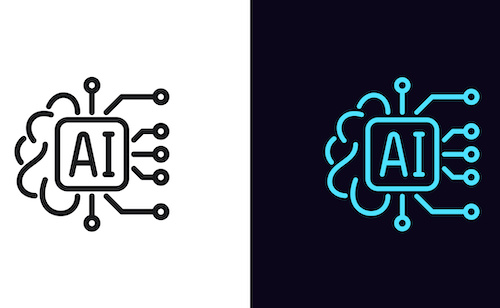Key points:
- AI’s impact is transformative, with innovative changes across the learning experience
- Learn about the impact of artificial intelligence in education
- Discover more about why AI in education is essential for learning
The impact of AI in education is profound, revolutionizing teaching and learning. AI’s personalized learning, streamlined administrative tasks, and data-driven insights reshape the educational landscape. Let’s explore how AI transforms classrooms, empowers educators, and prepares students for a future driven by technological advancements.
What is the impact of AI on education?
In looking at the future of AI in education, it’s essential to first address AI’s impact on education. AI’s impact is transformative, introducing innovative changes across various facets of the learning experience. Personalized learning, powered by AI algorithms, tailors educational content to individual student needs, fostering deeper comprehension and engagement. AI streamlines administrative tasks, such as grading, allowing educators to focus on interactive teaching methods and personalized interventions. Intelligent tutoring systems provide real-time feedback, contributing to a more proactive approach to learning. Data-driven insights from AI analytics inform teaching strategies, enabling educators to optimize learning outcomes.
Moreover, AI expands access to education globally through online platforms, virtual classrooms, and AI-driven educational tools. It facilitates inclusive learning environments and prepares students for the demands of a digital future. Still, AI is not without its challenges, which include the potential for bias in algorithms, privacy concerns, and the need for responsible implementation.
The impact of AI on education is revolutionary, offering personalized learning, increased efficiency, real-time feedback, and global accessibility. As technology continues to advance, responsible integration and ongoing collaboration will be essential to harness the full potential of AI in education, ensuring positive outcomes for educators and students alike.
Does AI benefit or hurt the field of education?
The pros and cons of AI in education are varied. On the positive side, AI brings personalized learning experiences, streamlines administrative tasks, and offers valuable insights for educators. It fosters efficiency, adapts to individual student needs, and prepares learners for the future workforce. Challenges include the risk of algorithmic bias, data privacy concerns, and the potential for over-reliance on technology, which might hinder critical thinking. The overall impact depends on responsible implementation, addressing ethical considerations, and ensuring a balanced integration that enhances, rather than hinders, the human-centric aspects of education. Balancing the benefits and challenges is crucial to realizing AI’s positive potential in transforming and enriching the field of education.
What are the benefits and risks of artificial intelligence in education?
AI in K-12 education offers significant benefits but comes with inherent risks that require careful consideration. Let’s look at some positive and negative effects of artificial intelligence in education.
Benefits:
- Personalized learning: AI tailors educational content to individual student needs, promoting a more engaging and effective learning experience.
- Efficient administrative tasks: Automated grading and administrative systems powered by AI free up time for educators, allowing them to focus on interactive teaching methods.
- Early intervention: AI facilitates early identification of learning challenges, enabling timely interventions and personalized support for struggling students.
- Global accessibility: AI contributes to online education, expanding access to quality learning resources beyond traditional boundaries.
Risks:
- Bias and inequity: AI algorithms may inherit biases present in training data, potentially reinforcing educational inequalities and perpetuating biases.
- Loss of human element: Overreliance on AI may compromise the essential human touch in education, impacting the emotional and social aspects crucial for holistic development.
- Privacy concerns: The collection and analysis of extensive student data raise privacy issues, necessitating robust safeguards to protect sensitive information.
- Technological dependence: Overdependence on AI could lead to a diminishing emphasis on critical thinking skills, creativity, and problem-solving among students.
Balancing these benefits and risks requires a thoughtful, ethical, and responsible approach to the integration of AI in K-12 education, ensuring that technology enhances the learning experience without compromising equity, privacy, or the human element in education.
How can AI disrupt education?
AI can disrupt K-12 education by revolutionizing traditional teaching methods. Personalized learning powered by AI algorithms tailors educational content to individual student needs, challenging the one-size-fits-all approach. Automated administrative tasks, such as grading, free up educators to focus on interactive teaching methods. Intelligent tutoring systems offer real-time feedback, reshaping the learning experience. However, disruption also poses challenges, including potential bias in algorithms and concerns about data privacy. A careful and responsible integration of AI is crucial to harness its transformative potential while addressing associated risks in K-12 education.
Conclusion
Educators, policymakers, parents, and stakeholders should unite to shape a future where AI enhances personalized learning, streamlines administrative tasks, and fosters innovation. Prioritizing professional development for educators, advocating for equitable AI access, and engaging in transparent collaborations are just a few steps to take.
All stakeholders can work together to unlock AI’s full potential, creating a dynamic and inclusive educational landscape that prepares students for the challenges of an evolving world. Collective action can harness the positive impact of AI in education and ensure a brighter future for learners globally.
- Classroom Learning - April 5, 2024
- Advantages and Disadvantages of Classroom Management - April 5, 2024
- What are Disadvantages of Classroom Management? - April 5, 2024

